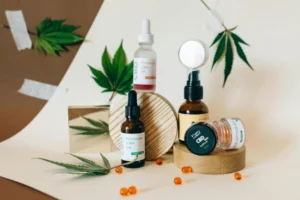Daily Necessities Made from Cannabis: From Hemp to Home – Brands, Packaging, and Sustainability
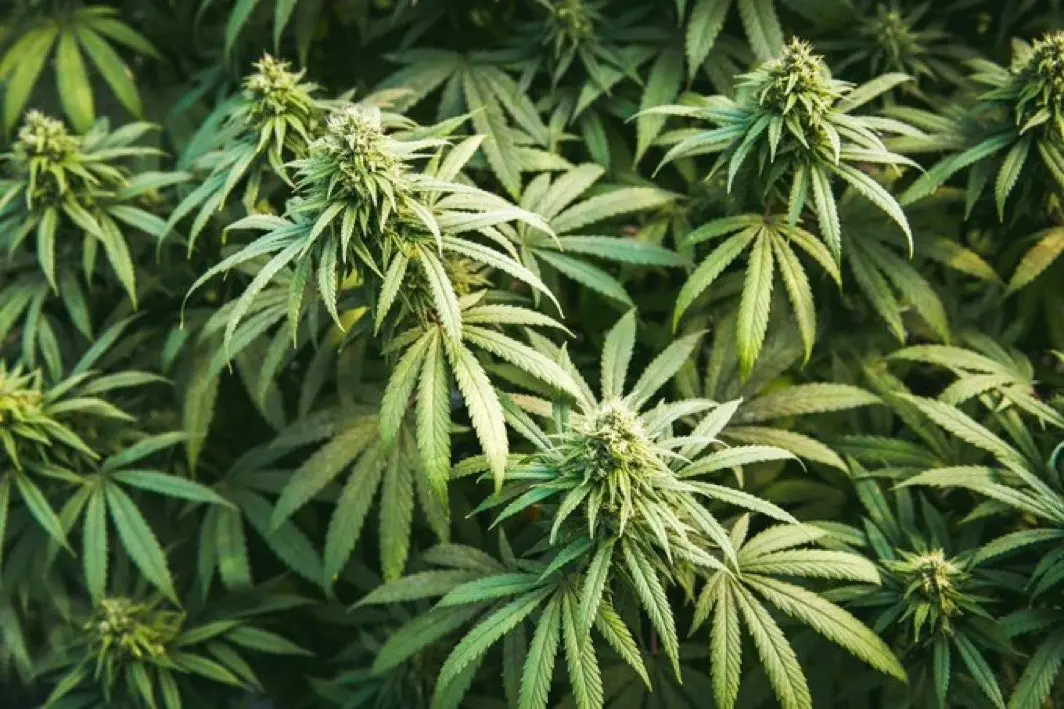
Cannabis, particularly its industrial variant hemp, is experiencing a remarkable renaissance. Long maligned due to associations with psychoactive marijuana, hemp and non-psychoactive cannabis derivatives are re-emerging as sustainable alternatives for an astonishing array of daily necessities. Recent decades have seen regulatory reforms, robust scientific research, and consumer demand converging to unlock hemp’s potential across industries. Unlike marijuana, hemp contains negligible tetrahydrocannabinol (THC)—the intoxicating component—and is widely legal for commercial cultivation in countries like the United States, Canada, much of Europe, and China. Its swift growth cycle, low water requirements, pest resistance, and ability to remediate soils make hemp one of the world’s most environmentally friendly crops.
Globally, the move toward conscious consumerism and reduced reliance on fossil-fuel-based materials has driven interest in natural fibers and plant-based alternatives. From textiles and self-care products to food, furniture, and even pet goods, cannabis is quietly revolutionizing what we use—and how we package it. As we explore the ever-evolving world of cannabis-based daily necessities, it’s clear: the story is as much about what’s inside the package as the package itself. Understanding not just which brands lead the movement, but how their products are presented and delivered in eco-friendly ways, is essential for making informed, impactful choices.
Cannabis-Derived Textiles and Clothing
Diverse Offerings: Sustainability Meets Style
Hemp was one of humanity’s earliest textile plants, and recent advances have brought it back into the fashion spotlight. Unlike traditional cotton, which is resource-intensive, hemp grows rapidly with minimal pesticides and fertilization, requiring far less water. The resulting fibers are notably strong, mildew-resistant, UV-protective, and antimicrobial—qualities that translate into a range of durable, breathable products for daily wear.
Today, wardrobe staples such as T-shirts, jeans, socks, underwear, dresses, and jackets are increasingly available in hemp and hemp-blend fabrics. Lightweight and soft, hemp clothing regulates temperatures while withstanding repeated washes far better than some conventional fabrics. Brands are even experimenting with workwear, yoga outfits, sleepwear, and active footwear made with hemp or blended with organic cotton, recycled polyester, or bamboo for improved fit and performance. Sumptuous accessories like beanies, scarves, and eco-totes further showcase hemp’s versatility. For the sustainability-minded, even backpacks and handbags are now available made almost entirely from woven hemp, displaying exceptional durability and a distinctive, earthy aesthetic.
Leading Brands and Their Commitments
Several international brands have spearheaded the wave of hemp textile revival. Patagonia, for example, is a longstanding leader in eco-conscious outerwear and equipment, offering a line of clothing with 55% hemp and 45% certified organic cotton. Their hemp hoodies, trousers, and work shirts combine comfort and resilience, while their supply chain transparency ensures responsible sourcing.
Hemp Tailor (formerly known as Hemp Hoodlamb), based in the Netherlands, is another pioneer. They specialize in premium outerwear, jeans, and casual wear tailored from European-grown hemp, often blended with recycled PET and organic cotton for thermal lining and extra insulation. Their commitment extends to climate-neutral practices and social responsibility throughout the supply chain.
THTC (The Hemp Trading Company), a British streetwear label, is renowned for graphic tees, hoodies, and casual jeans made from blends of hemp and bamboo viscose. THTC places ethical labor, renewable energy, and low-impact dyes at the core of its production, and it is widely regarded among music artists and green influencers alike.
Packaging That Makes a Statement
Sustainable fashion doesn’t end with the clothes—it’s also about how they’re packaged. Many hemp apparel brands have eliminated virgin plastics from their packaging entirely, opting for recycled paper mailers, compostable garment bags, and even corrugated boxes derived from hemp pulp. These materials naturally biodegrade faster than conventional plastics and carry a lower carbon footprint.
Innovations abound: corrugated hemp cardboard, for example, is now being adopted as an alternative to wood pulp-based packaging. Robust yet lightweight, it offers excellent protection during shipping. Brands like Patagonia use their packaging as an educational tool, often featuring messages about the environmental benefits of hemp, garment care tips for longevity, and instructions for recycling or composting packaging after use.
Transparency in labeling is also critical; detailed information about fiber content, dye origin, and packaging materials helps consumers make conscious choices. QR codes on tags can take buyers directly to pages outlining the company’s environmental policies and third-party certifications, such as Global Organic Textile Standard (GOTS), Fair Trade, and OEKO-TEX 100.
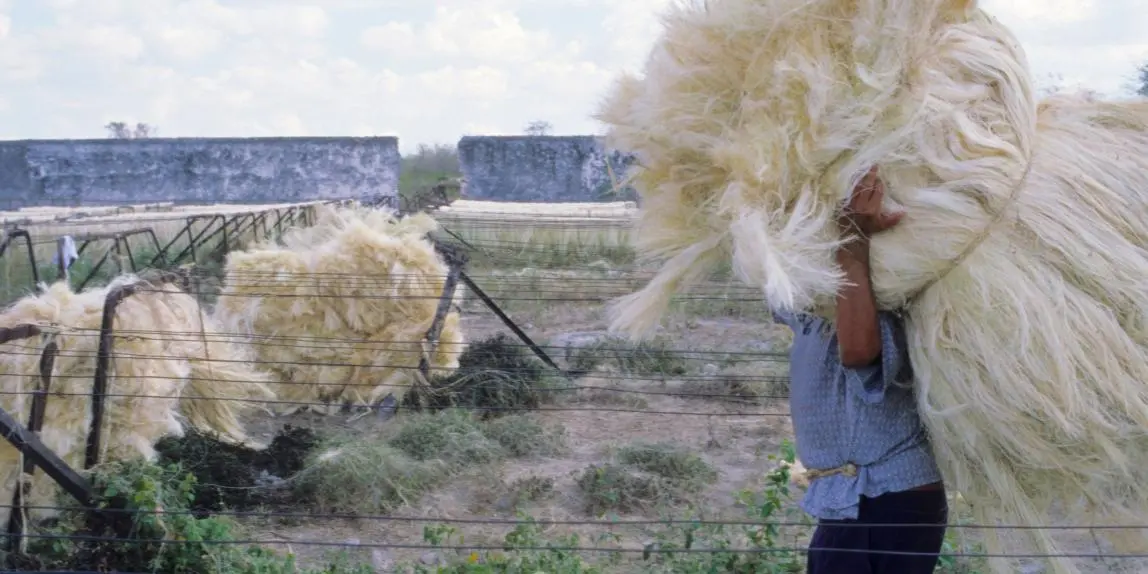
Cannabis-Based Personal Care and Hygiene Products
Plant-Powered Pampering: Types and Benefits
Personal care products are among the most dynamic and widely adopted categories of cannabis-derived goods. Hemp seed oil, prized for its perfect balance of omega-3 and omega-6 fatty acids, nourishes skin and hair without clogging pores, making it ideal for sensitive skin. Cannabidiol (CBD), another non-intoxicating compound, is valued for its antioxidant, anti-inflammatory, and soothing properties.
Modern routines now include hemp-based soaps, facial and body cleansers, shampoos, conditioners, lotions, deodorants, and even toothpaste. Many formulas are vegan and cruelty-free, packed with botanicals for targeted benefits: hydration, soothing irritation, balancing oily skin, or enhancing hair gloss. Newer developments include SPF creams, body butters, bath soaks, and CBD-infused bath bombs, extending the utility and luxury of these products.
Trailblazing Brands and Their Products
Dr. Bronner’s is a global icon for natural soaps, many of which rely on certified-organic hemp oil for a rich, gentle cleanse. Their legendary liquid and bar soaps, wrapped in legendary multi-lingual wrappers, are made from entirely vegan ingredients and are biodegradable, perfect for camping or outdoor enthusiasts. The brand bottles its products in 100% post-consumer PET plastic, echoing its holistic mission.
The Body Shop, a widely recognized advocate for ethical sourcing, has introduced a best-selling line of hemp hand creams, body butters, and facial moisturizers. Sourced from French hemp farmers, the oils in these products deliver deep hydration for dry and sensitive skin—especially popular in dry winter climates.
Andalou Naturals has carved out a niche with its hemp stem cell range, harnessing plant-based stem cell technology for regenerative skincare. Their lotions and serums target aging, boosting skin repair and elasticity while being free from synthetic fragrances, phthalates, and parabens.
Emerging brands like Grön stand out for their gourmet, spa-quality CBD-infused bath salts, while VoyagerCann and Plant People focus exclusively on premium CBD wellness formulas for hair, skin, and relaxation.
Responsible Packaging Innovations
Savvy personal care brands deploy a mix of packaging solutions to minimize environmental impact: recyclable glass jars and bottles for creams and oils, compostable wrappers for soap bars, and re-usable tins for lip balms and solid lotions. PCR (post-consumer recycled) plastics are favored for squeezable tubes, while refill stations and mail-back programs are piloted in select urban markets to further cut waste.
Labels clearly indicate ingredient sourcing, allergen information (especially for nut oils or gluten derivatives), and whether packaging is compostable, recyclable, or upcycled from agricultural waste. Innovations such as biodegradable pumps for lotions and concentrated “solid” formats (like shampoo bars) slash the need for plastic.
Some companies are experimenting with microencapsulation, embedding microdroplets of CBD in textiles like pillowcases and bedsheets for a slow, gentle release—a trend that fuses personal care with the comfort of everyday home essentials.
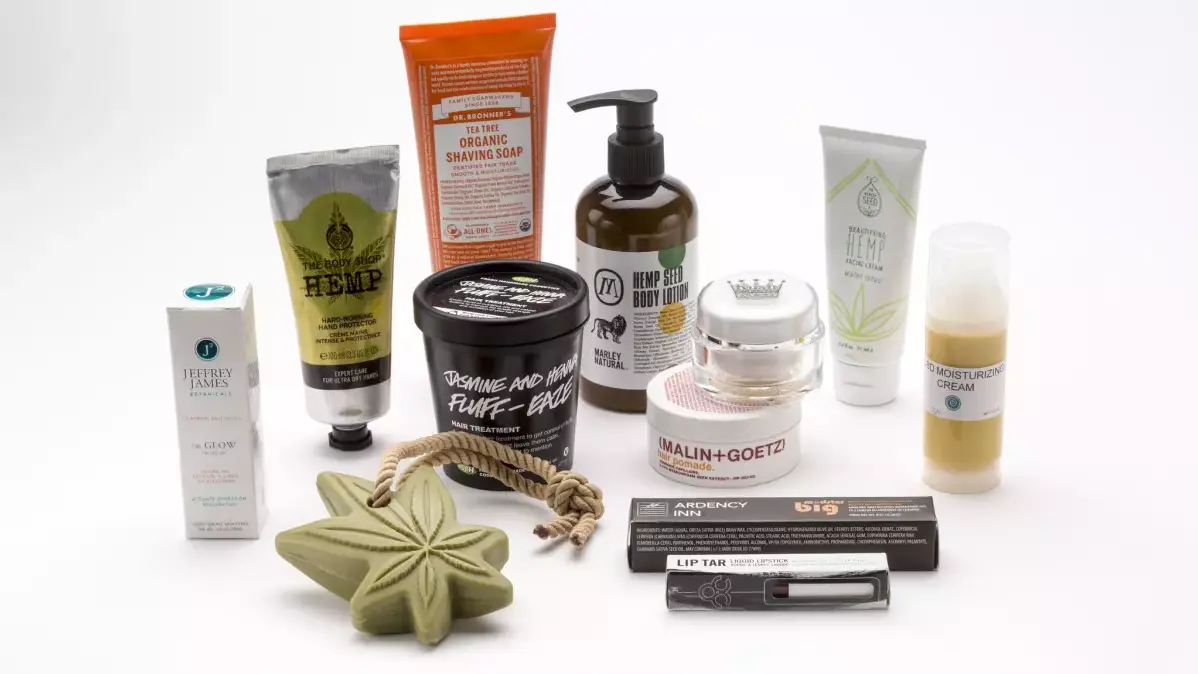
Food and Beverage Essentials: Hemp on Your Plate
Nutritional Powerhouse, Everyday Convenience
Hemp seeds are loaded with protein, healthy fats, minerals, and all nine essential amino acids, making them one of the few plant foods classed as complete proteins. Cold-pressed hemp seed oil delivers a nutty flavor and perfectly balanced ratio of omega-6 to omega-3 fatty acids, ideal for salad dressings and dips but not suitable for high-heat cooking.
Protein powders made from hulled hemp seeds offer a vegan-friendly, highly digestible protein source for shakes, smoothies, and baking. Hemp milk, a non-dairy alternative, is increasingly available in both sweetened and unsweetened versions, with excellent frothing properties for coffee and lattes. Snack bars, granolas, cereal clusters, and even hemp teas provide on-the-go nutrition for busy lifestyles. In staples like pasta and flour blends, hemp fortifies gluten-free diets with extra fiber and nutrients.
Leaders in the Hemp Food Revolution
Manitoba Harvest is North America’s largest hemp food brand, producing a wide range of products from organic seeds to oil, protein powder, and snack clusters. Their products are third-party tested for purity, non-GMO, and widely available in natural grocers and mainstream supermarkets alike. Packaging often highlights exact omega-fatty acid content per serving, allergen-free status, and detailed sourcing from Canadian partner farms.
Nutiva is another powerhouse, distributing USDA-certified organic hemp seed, baking flour, oil, and protein blends. Their online store is a gateway to recipes and educational guides on incorporating hemp into daily menus. What sets Nutiva apart is their closed-loop commitment: all products are packaged in non-BPA, recyclable pouches, and shipments use minimal fillers.
Good Hemp is a UK-based company pioneering long-life hemp milk and protein. With creamy texture and a mild, nutty flavor, their milk is enriched with calcium and vitamin D, broadening plant-based options for consumers with soy or nut allergies.
Many of these brands offer single-serve sachets or larger resealable pouches for bulk use, ensuring freshness and convenience.
Packaging with a Purpose
Hemp-based food brands know their customers care as much about how products are packaged as what’s inside. Rising to the challenge, they use recyclable glass for oils, compostable or recaptured-plastic sachets for powder and seeds, and double-sealed pouches for snacks. Resealable, stand-up pouches ensure dry goods last longer and prevent waste.
Bold, clear labeling tells the story: nutritional breakdowns, sustainability certifications, origin of crops, and instructions for disposal or recycling. Bulk buyers are increasingly offered plain, minimal-packaging refills. Forward-thinking companies invest in water-based inks and plant-based laminates, further reducing synthetic chemical exposure.
For subscription meal boxes featuring hemp, packaging becomes an experience in itself—unboxing often includes recipe cards printed on post-consumer hemp paper and insulation made from recycled hemp fiber, replacing plastic foam or bubble wrap.
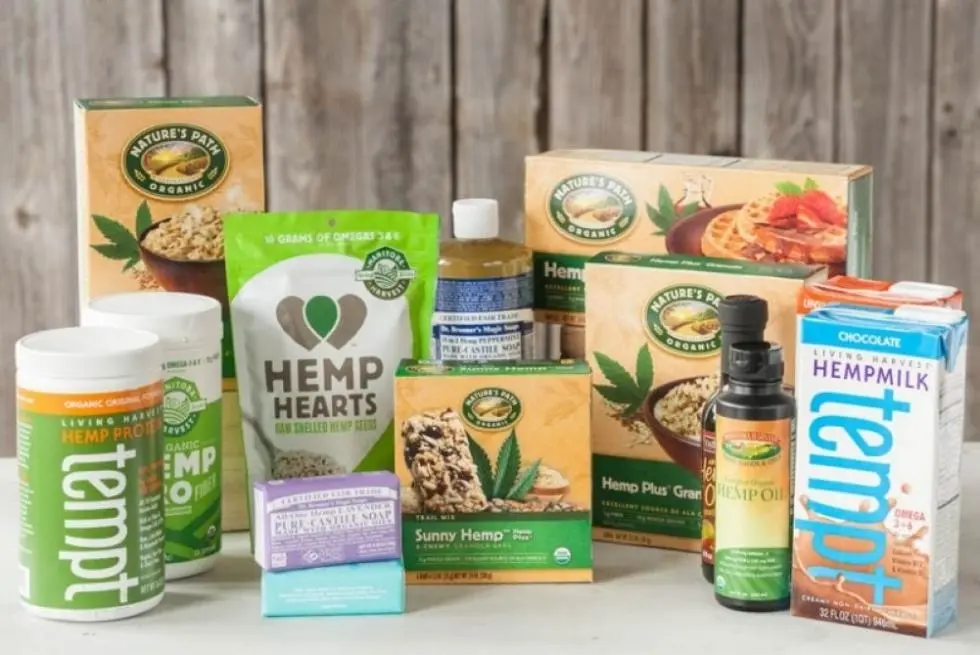
Household Items from Cannabis: Eco-Smart Living
Innovations in Everyday Life
Hemp’s remarkable strength, lightness, and renewability make it an attractive option for an expanding selection of household goods. Biodegradable utensils, plates, and disposable partyware made from pressed hemp fiber are gaining traction as plastic bans sweep the globe. Woven storage baskets, tool straps, rugs, and even luxury linen made from hemp blend seamlessly into homes with a rustic yet modern appeal.
For DIY enthusiasts, hemp rope and twine are essential tools—tough, rot-resistant, and perfect for everything from garden work to wall art installations. Furniture makers leverage hemp fiberboard and “hempwood” for desks, tables, and shelving, utilizing adhesives free from toxic solvents and formaldehyde. Green Field Paper Company crafts beautiful writing journals, sketch pads, and greeting cards from post-consumer recycled hemp pulp, offering a cleaner, longer-lasting surface for pen and ink.
Brands Building the Future
Hempy’s, based in California, crafts an array of products from clothing to reusable kitchen accessories, like hemp napkins, dishcloths, and shopping totes. Their long-wearing beanies and everyday bags have become staples for the eco-conscious.
Hempire, a European firm, has made headlines with construction materials like naturally mold-resistant insulation panels and floorboards pressed from hemp hurds and lime. Widely used in “hempcrete” construction, these products offer superior thermal and acoustic insulation, helping green builders cut carbon emissions dramatically.
Green Field Paper Company, meanwhile, produces paper goods ranging from journals to wedding invitations, all with a distinct, textured feel and look that elevates special projects. Recycling and repurposing “post-industrial” hemp fiber, they serve both creative professionals and earth-friendly offices.
Packaging: Thoughtful, Minimal, Biodegradable
Household hemp goods frequently come in streamlined, minimal packaging. Instead of polybags or shiny boxes, brands opt for reusable muslin or hemp cloth bags, jute string ties, or packing sleeves crafted from unbleached, recycled cardboard. Some even use packaging as part of the product: kitchen towels doubled as wrapping, or rope bundled to become its own carrying loop.
Wallpaper and paint brands using hemp as a natural binder deliver paint in refilled tins or recyclable tubs, slashing post-consumer waste. Where padding is needed, shredded waste from hemp textile production takes the place of plastic bubbles.
Messages about proper disposal, compostability, and upcycling ideas fill every label and insert. From a zero-waste perspective, it’s not just what you buy, but also how you discard it that matters, and these brands make it easier to close the loop cleanly.

Health and Wellness Necessities: From CBD to Hemp Hygiene
An Expanding Arsenal of Wellness
Hemp and CBD-based health and wellness products are among the fastest-growing natural remedies worldwide. Proven benefits of CBD include reducing inflammation, relief from anxiety, and support for restful sleep. Topical salves and balms employ hemp oil’s moisturizing and restorative powers for localized relief or everyday skin hydration. Meanwhile, hemp-derived menstrual products are gaining popularity as women seek biodegradable, non-toxic alternatives to conventional pads and tampons.
CBD oils, tinctures, and capsules in various strengths cater to everything from post-workout muscle recovery to calming daily nerves. Products range from ingestibles—capsules, gummies, teas—to topicals, such as massage oils and acne-fighting lotions. Hemp-based supplements with adaptogens and functional mushrooms are now being created to further target immune health, metabolism, or stress.
Notable Brands Leading the Charge
Charlotte’s Web is the North American gold standard for CBD oils, capsules, and body lotions. Sourced from Colorado-grown, non-GMO hemp, each batch is third-party tested for cannabinoid content and purity. Their products are routinely recommended for pain management, sleeping disorders, and general wellness—often with glowing endorsements from health professionals and those with chronic conditions.
Elate Cosmetics infuses its plant-powered wellness products with hemp seed oil, particularly in skincare and makeup such as primers, balms, and hydrating sticks. The focus is on clean beauty: minimal ingredients, low waste, and sustainable sourcing.
Daye, a UK-based startup, has brought game-changing innovation to period care. Their tampons, crafted with organic hemp and cotton, are infused with CBD or probiotics, offering superior comfort, reduced risk of irritation, and natural antimicrobial protection—a solution to a longstanding women’s health challenge. Daye’s approach is heavily science- and transparency-driven, with full ingredient disclosure and rigorous lab testing.
Packaging for Protection, Safety, and the Planet
Packaging health products is a delicate balance: it must ensure product safety, prevent tampering and contamination, and protect sensitive components from light and air. Top CBD brands use UV-protected glass bottles, child-resistant dropper caps, and tamper-evident seals. For creams and balms, single-serve recyclable sachets enable on-the-go dosing without mess or waste.
Night or travel packs employ airless pumps in recyclable plastics or aluminum, maximizing shelf-life and minimizing exposure to air. Labels display batch numbers and QR codes linking directly to Certificates of Analysis (COAs), offering full transparency about cannabinoid and contaminant testing. This level of detail is especially crucial in an industry where inaccurate labeling has historically been a problem.
Menstrual products like those from Daye arrive in compostable, plant-fiber wrappers, with mailing boxes fully curbside recyclable and printed in plant-based inks. Instructional inserts are printed on hemp paper, keeping the experience cohesive and waste-conscious.
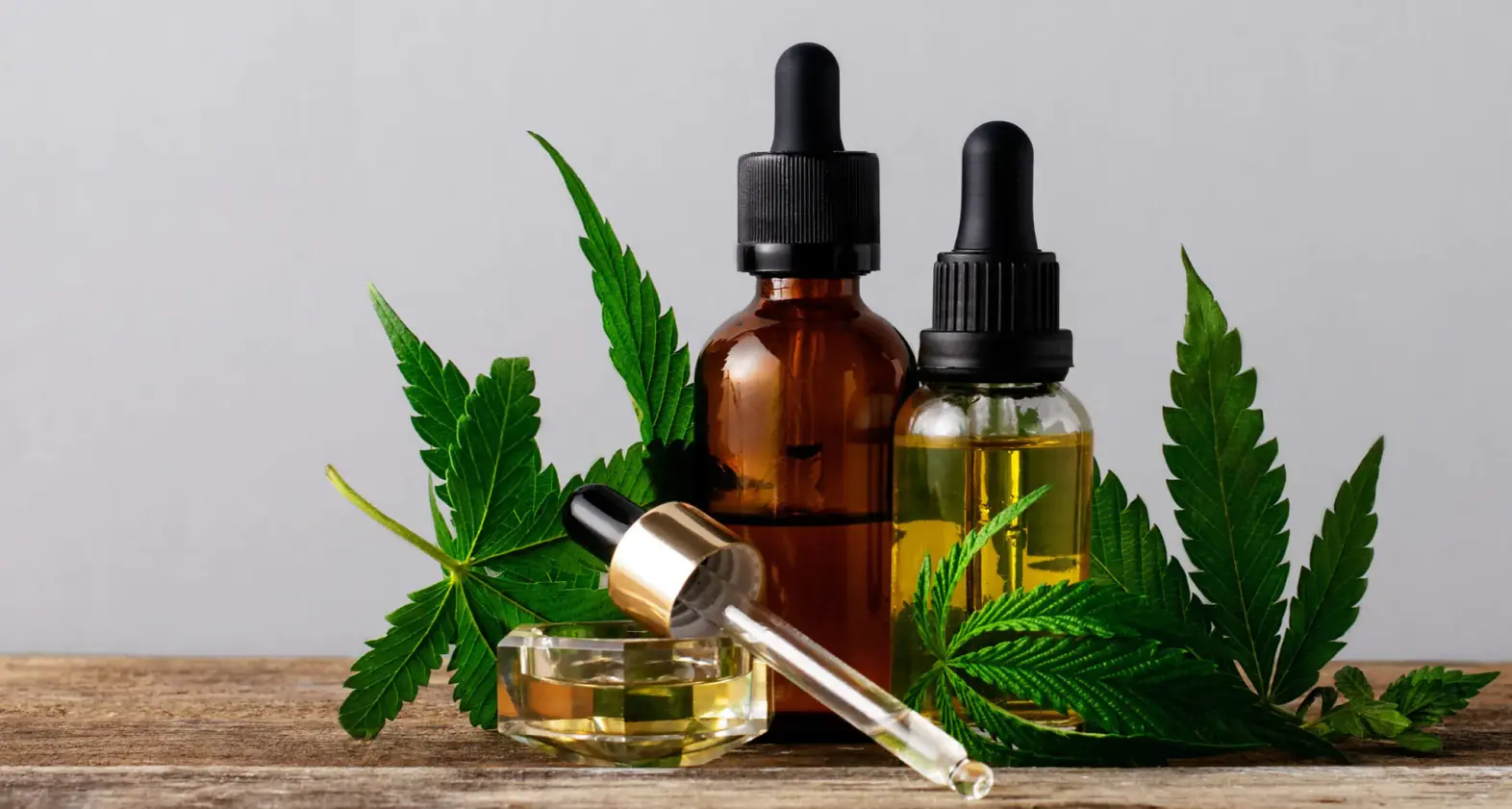
Cannabis in Pet Products: Wellness for Companions
Expanding Care to Animal Friends
Pet owners are embracing hemp in the quest for safer, more natural, and more gentle alternatives for their furry friends. Hemp fiber, free from toxic residues, is spun into ultra-absorbent bedding for small animals and birds. Dogs and cats find relief from stress, joint pain, and inflammation with hemp-derived CBD treats, tinctures, and balms—especially critical for aging or highly anxious pets.
Special shampoos and grooming products featuring hemp seed oil offer gentle cleaning, superior conditioning, and the ability to soothe itchy, irritated skin. Paw balms protect delicate pads from scorching sidewalks or icy winter walks.
Brands Bringing Relief and Resilience
HolistaPet, a well-regarded U.S. brand, combines organic hemp-derived CBD with robust research to create grain-free, non-GMO treats, tinctures, and capsules for cats and dogs. Their formulas are adapted to animals’ unique biochemistry, offering easy dosing guidelines and flavor options pets love.
HempMy Pet raises the bar with veterinarian-crafted, human-grade CBD treats and wellness oils. Their products support everything from mobility and anti-anxiety to skin health and recovery from injuries. All batches are third-party verified, and their commitment to transparency includes sourcing hemp only from Colorado and Oregon farms.
Canna-Pet is a pioneer in proprietary, full-spectrum hemp formulas. They champion the “entourage effect,” meaning their treats and oils retain minor cannabinoids and terpenes alongside CBD for comprehensive pet wellness.
Safe, Sustainable Packaging
Pet product packaging prioritizes both human and animal safety. Compostable treat bags, eco-friendly pouches, and clearly printed dropper bottles reduce landfill impact. Labels highlight storage instructions, dosing advice, and the presence or absence of animal-derived ingredients, addressing pets with allergies or dietary restrictions.
Innovative products have replaced plastic windows and closures with cellulose alternatives, meaning the bag or box can be fully composted. Secure closures, childproof lids, and biosafe adhesives ensure no risk if a curious dog chews into a bag—and recyclable, BPA-free plastics are used where moisture barriers are needed.
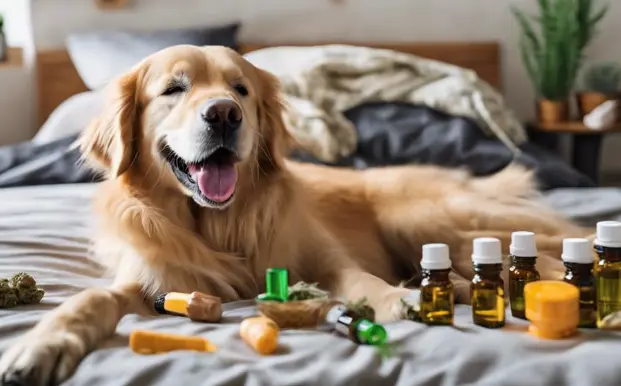
How to Choose Brands and Packaging Responsibly
Eco-Certifications and Third-Party Trust
Responsibility begins by seeking reputable third-party verifications. USDA Organic, Non-GMO Project Verified, and Fair Trade seals validate that hemp crops are grown without synthetic chemicals and in ways that respect worker rights and the land. For body care and food, look for Cruelty-Free (Leaping Bunny) and vegan certifications.
Forest Stewardship Council (FSC) certified packaging guarantees sustainable sourcing of any paper or board, while “OK Compost” or home compostability logos assure breakdown of wrappers and films at end of life. Recycled content is increasingly standard, with brands indicating the percentage of PCR plastics or upcycled fiber used.
Packaging Priorities: Reduce, Reuse, Refill
When selecting cannabis-based daily necessities, favor those brands using compostable, recyclable, or refillable packaging. Some retailers now offer refill stations for oils or personal care, while others run mail-back programs to reclaim bottles and tins, closing the supply loop. Bulk packaging and minimization of double or triple wrapping is a bonus, reducing waste from the outset.
Transparency is everything: honest, complete ingredient lists, clear country-of-origin labeling, and information on how to dispose of empty packaging helps consumers avoid “greenwashing” and make sound decisions. QR codes direct buyers to sustainability reports and sourcing stories, ensuring nothing is hidden behind marketing spin.
Corporate Initiatives and Circular Solutions
Sustainable brands go beyond packaging, investing in regenerative farming, carbon neutrality, and source-local production. Patagonia, for instance, is active in carbon offsetting and fair labor; Daye’s “period poverty” initiatives provide free products to women in need. Circular economy efforts—from garment recycling programs to hempcrete construction waste reuse—make a profound, measurable difference.
With every dollar spent on responsible brands, consumers signal demand and help scale the infrastructure needed for widespread, systemic change.
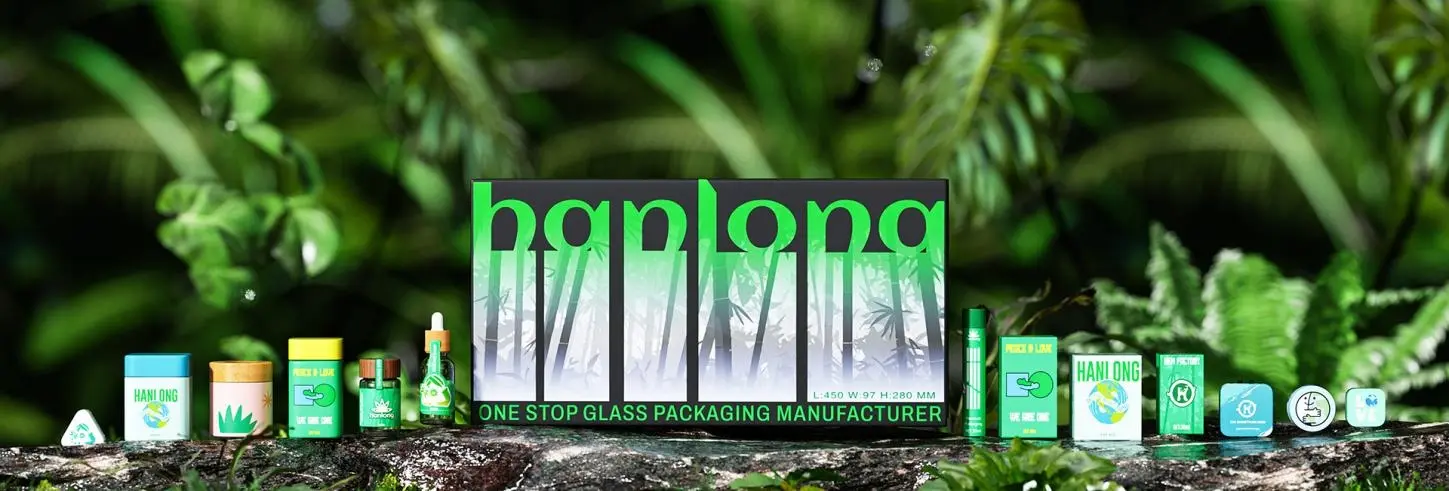
One-stop cannabis packaging manufacturer – Ghettopac (Jarsking Group)
Challenges and Innovations in Cannabis-Based Daily Necessities
Navigating Regulatory Complexity
Legal frameworks for hemp-derived products vary greatly between countries and even regions. In the United States, the 2018 Farm Bill federally legalized industrial hemp, but state regulations often diverge, particularly regarding allowable THC thresholds and CBD as an additive. Canada and Europe maintain strict but evolving standards for cultivation, labeling, and testing.
Packaging regulations are also demanding: CBD products must be child-resistant and tamper-proof; food products require full allergen disclosure, and cosmetics need specific labeling for allergens and country of manufacture. Brands are often audited, and frequent updates to compliance documentation are required.
Driving Innovation
Materials science is unlocking next-generation uses for cannabis. Hemp bioplastics, produced by processing cellulose from stalks and hurds, provide compostable, lightweight alternatives to single-use plastics seen in cutlery, cups, and even phone cases. Hemp-based composites are now being 3D-printed into custom packaging forms, helping brands reduce molding waste and carbon emissions.
Another breakthrough: microencapsulation delivers active ingredients (like CBD, botanicals, or even scents) via tiny capsules within textiles. These are now used in sleep masks, eye pillows, and pillowcases, releasing a gentle, long-lasting effect with every use.
Researchers and entrepreneurs are also trialing bio-based adhesives, durable dyes from plant waste, and hemp-infused building panels—a sign that hemp’s sustainability credentials are being integrated into new processes from the ground up.
Educating Consumers for Informed Choices
Despite rapid growth, persistent myths and doubts remain about cannabis in consumer goods. Brands have stepped up their educational efforts, embedding QR codes into packaging which link to detailed lab results, explainer videos, and histories of hemp’s legal journey. Consumer-facing campaigns clarify that hemp is non-psychoactive, non-addictive, and legal in many markets.
Clear, accessible FAQs and direct communication channels—often staffed by experts—allow wary shoppers to get honest information, fostering trust and long-term loyalty.
Conclusion: Conscious Choices, Profound Impact
Cannabis, in the form of industrial hemp and non-psychoactive extracts, is already reshaping what we wear, eat, clean with, and give to our pets. From the soap next to our sinks and the granola in our breakfast bowl, to the jeans we wear and the treats we use for our pets, cannabis-based daily necessities are more accessible, responsible, and innovative than ever. The brands leading this movement aren’t just committed to quality—they’re providing full transparency about sourcing, production, and packaging, ensuring that every purchase is a step toward sustainability.
By choosing responsibly-made cannabis-derived products, consumers become catalysts for transformation. Their preferences and purchasing power direct investment into more regenerative farming, safer manufacturing, and truly circular economies. The result: individual well-being supported by a healthier planet, with each purchase a vote for the future we want to see.
As the cannabis sector continues to evolve, both brands and consumers have vital roles to play in shaping a marketplace that prizes wellness, ethics, and care for the Earth. By paying attention to both product and packaging, we collectively drive innovation, demand integrity, and create a legacy worth passing down—for ourselves, and for generations yet to come.


